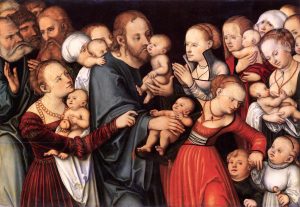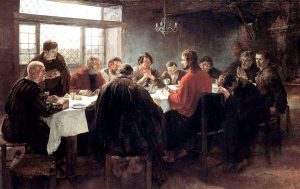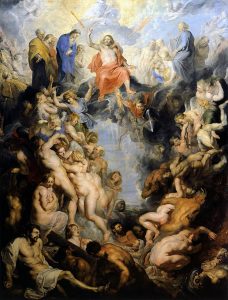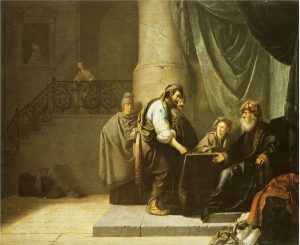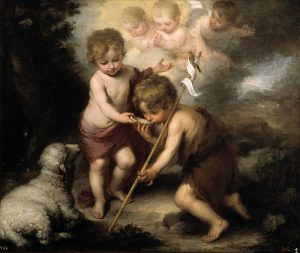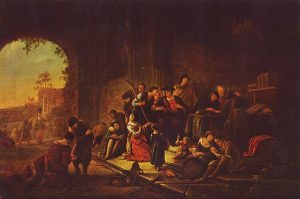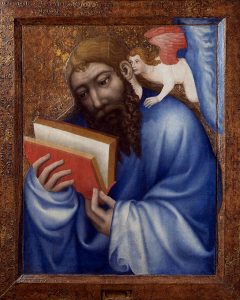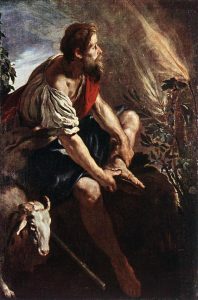Illuminations on the Lectionary readings for May 25, 2025 (Easter 6C)
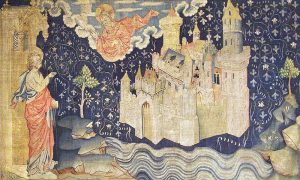
La Jérusalem céleste (“The Heavenly Jerusalem”), a portion of the 14th century Tapestry of the Apocalypse at the Château d’Angers, France. (Click image to enlarge.)
First Reading: Acts 16:9-15
As we approach the final weeks of Eastertide, Sunday’s readings remind us once more that God’s love embraces all of Earth’s people and all of Earth’s nations: Jesus did not come to save only a chosen few. Our first reading from Acts shows Paul taking Jesus’ message westward from Asia Minor, where he has been teaching and baptizing, into Europe for the first time. In the new Christian community at Philippi in Greece, he converts Lydia, a leader of the community and a wealthy merchant of royal purple cloth. Lydia becomes a benefactor of the growing Jesus movement, inviting Paul to stay in her home.
Psalm: Psalm 67
Echoing the theme of Paul opening the doors of the church to everyone, this short but joyful Psalm calls all the nations of Earth and all their people to sing together in peace and praise. God has blessed us, and through God the Earth has given forth its bounty, the Psalmist sings. The Psalm does not tell us to give God thanks and praise only for our personal gains. We are to make God’s grace and salvation known to all people, all nations. We who have enjoyed God’s blessings are expected to share God’s good news to the ends of the Earth.
Second Reading: Revelation 21:10,22-22:5
Continuing in the final chapters of Revelation, we discover that the New Testament is concluding with vivid images of life at the end of time. We imagine the New Jerusalem, heaven come down to Earth, with a crystal stream and tree of life in the midst of a city so brilliant in the graceful glow of the Lamb that it needs no other light. In verses politically radical for their time and perhaps any other, we hear that all earthly kings will worship at God’s throne in this blissful city. The city’s pure waters and luscious fruit will nourish all nations and everyone.
Gospel: John 14:23-29
“Peace I leave with you; my peace I give to you.” Jesus utters these familiar, loving words as he concludes his farewell to his disciples at the Last Supper. Jesus tells them that he is going away, a prospect that would surely trouble their hearts. But Jesus reassures them that God will remain present with them. God will send an Advocate, God’s Holy Spirit, to come in Jesus’ name to teach and inspire them. These words that Jesus uttered just before his passion and crucifixion will resonate with us again in two weeks on Pentecost Sunday.
Alternate Gospel: John 5:1-9
Jesus, visiting Jerusalem for a festival, stops by a pool called Bethsaida where many people hope to be healed in its waters. Seeing a disabled man who has been waiting there for 38 years, Jesus asks him if he would like to be made well. Rather than responding at once, the man complains that he hasn’t been able to get into the healing water during all those years because no one would help him. Without further discussion, Jesus told the man, “Stand up, take your mat and walk,” and so he does, walking away without a word of thanks. The passage concludes, briefly, “Now that day was a Sabbath.” The verses that follow this reading reveal that this Sabbath healing outraged the Temple authorities, who began making plans to have Jesus killed.

